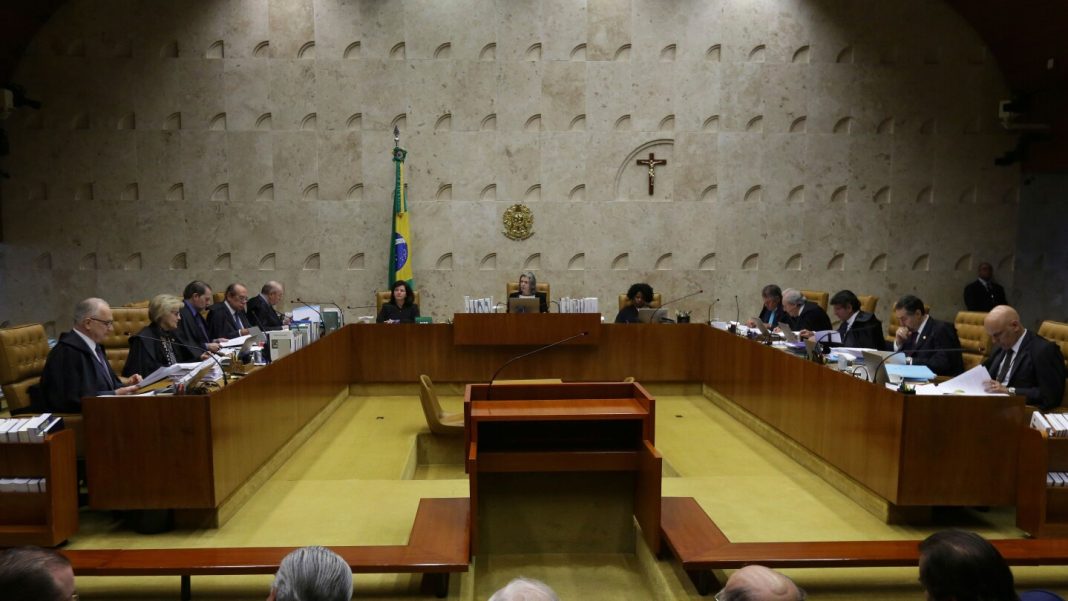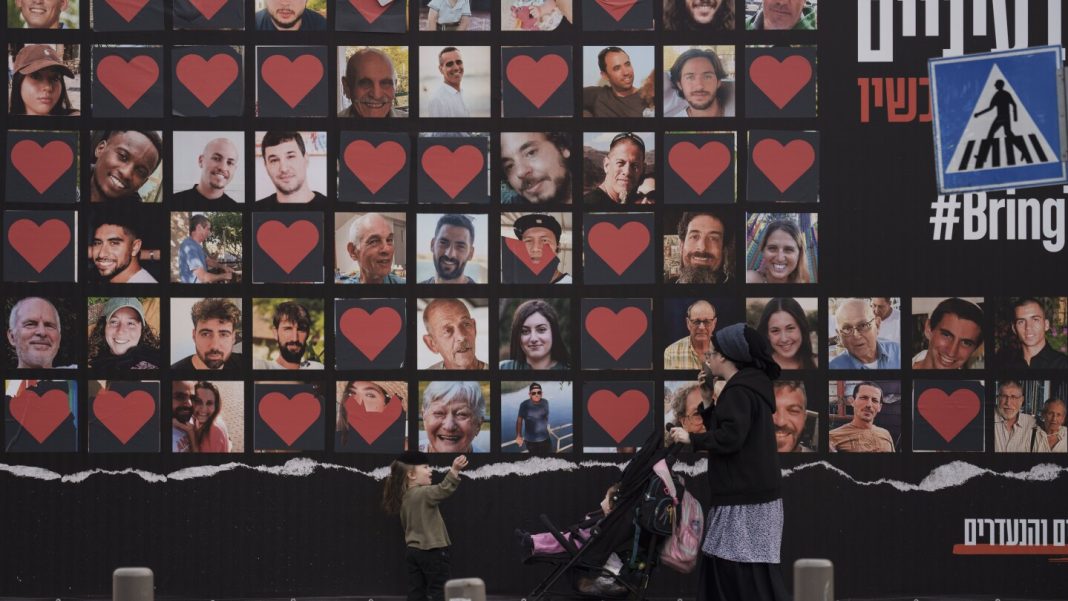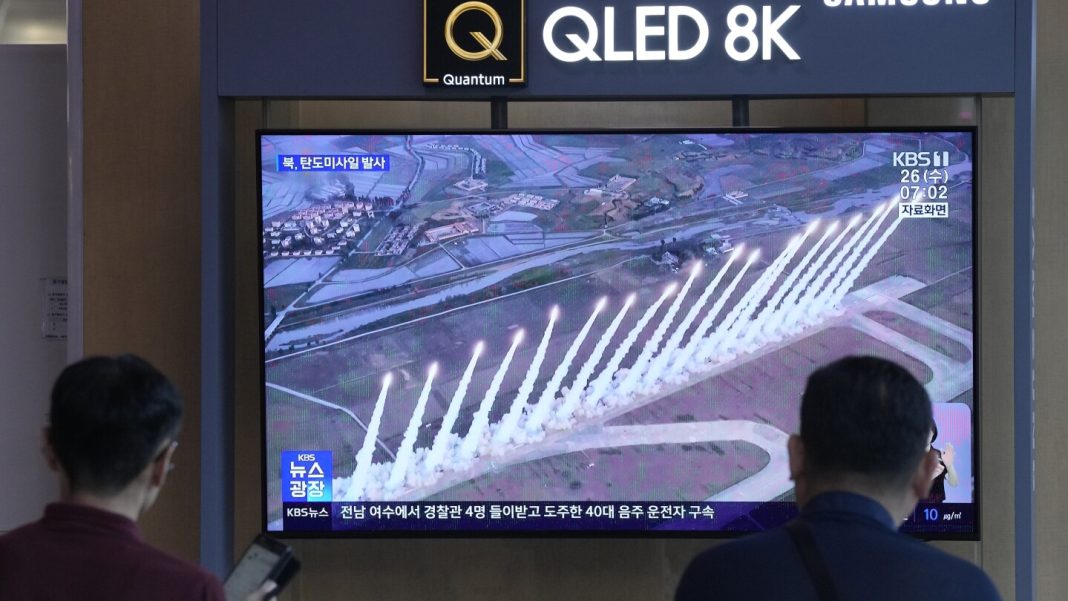RIO DE JANEIRO (news agencies) — Brazil’s Supreme Court on Tuesday voted to decriminalize possession of marijuana for personal use, making the nation one of Latin America’s last to do so, in a move that could reduce its massive prison population.
With final votes cast on Tuesday, a majority of the justices on the 11-person court have voted in favor of decriminalization since deliberations began in 2015.
The justices must still determine the maximum quantity of marijuana that would be characterized as being for personal use and when the ruling will enter into effect. That is expected to finish as early as Wednesday.
All the justices who have voted in favor said decriminalization should be restricted to possession of marijuana in amounts suitable for personal use. Selling drugs will remain illegal.
In 2006, Brazil’s Congress approved a law that sought to punish individuals caught carrying small amounts of drugs, including marijuana, with alternative penalties such as community service. Experts say the law was too vague and didn’t establish a specific quantity to help law enforcement and judges differentiate personal use from drug trafficking.
Police continued to arrest people carrying small quantities of drugs on trafficking charges and Brazil’s prison population continued to swell.
“The majority of pre-trial detainees and those convicted of drug trafficking in Brazil are first-time offenders, who carried small amounts of illicit substance with them, caught in routine police operations, unarmed and with no evidence of any relationship with organized crime,” said Ilona Szabó, president of Igarapé Institute, a think tank focusing on public security.
Congress has responded to the top court’s ongoing deliberations by separately advancing a proposal to tighten drug legislation, which would complicate the legal picture surrounding marijuana possession.
In April, the Senate approved a constitutional amendment criminalizing possession of any quantity of illicit substance. The lower house’s constitutional committee approved the proposal on June 12, and it will need to pass through at least one other committee before going to a floor vote.
If lawmakers pass such a measure, the legislation would take precedence over the top court’s ruling but still could be challenged on constitutional grounds.
Speaking to reporters in capital Brasilia, the Senate’s president, Rodrigo Pacheco, said it isn’t the Supreme Court’s place to issue a decision on the matter.
“There is an appropriate path for this discussion to move forward and that is the legislative process,” he said. “It is something that, obviously, arouses broad discussion and it is a subject of preoccupation for Congress.”
Last year, a Brazilian court authorized some patients to grow cannabis for medical treatment after the health regulator in 2019 approved guidelines for the sale of medicinal products derived from cannabis. But Brazil is one of a few countries in Latin America that hasn’t decriminalized the possession of small quantities of drugs for personal consumption.
The Supreme Court’s ruling has long been sought by activists and legal scholars in a country where the prison population has become the third largest in the world. Critics of current legislation say users caught with even small amounts of drugs are regularly convicted on trafficking charges and locked up in overcrowded jails, where they are forced to join prison gangs.
“Today, trafficking is the main vector for imprisonment in Brazil,” said Cristiano Maronna, director of JUSTA, a civil society group focusing on the justice system.
Brazil ranks behind U.S. and China in countries with the highest prison populations, according to the World Prison Brief, a database tracking such figures.
Some 852,000 individuals were deprived of liberty in Brazil as of December 2023, according to official data. Of those, nearly 25% were arrested for possession of drugs or trafficking. Brazilian jails are overcrowded, and Black citizens are disproportionately represented, accounting for more than two-thirds of the prison population.
A recent study by Insper, a Brazilian research and education institute, determined that Black individuals found by police with drugs were slightly more likely to be indicted as traffickers than white people. The authors analyzed over 3.5 million records from Sao Paulo’s public security secretariat from 2010 to 2020.
“An advance in drug policy in Brazil! This is an issue of public health, not security and incarceration,” leftist lawmaker Chico Alencar wrote on X after the ruling.
By contrast, Gustavo Scandelari, a specialist on Brazil’s penal code at law firm Dotti Advogados, said he doesn’t foresee the ruling bringing about a significant shift from the status quo, even after the top court establishes a maximum quantity of marijuana for personal use. Scandelari argued that the amount will remain one determinant of whether authorities consider a person a dealer or a user, but not the only one.




